River Wye pollution leads chicken firm to be sued
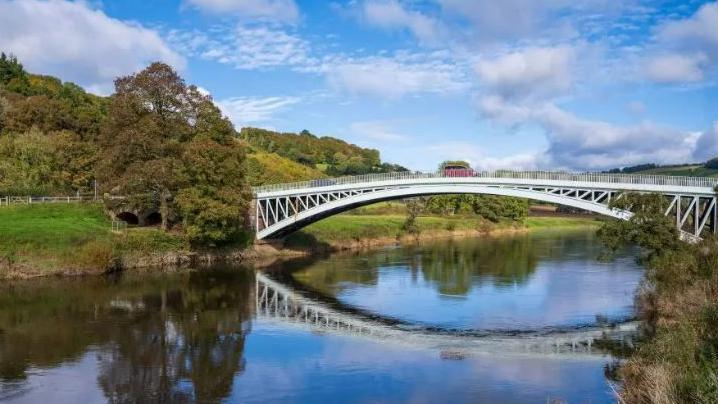
In 2023, pollution levels in the River Wye led Natural England to reclassify its status to "unfavourable-declining"
- Published
One of the UK's biggest food producers is being sued for allegedly damaging the River Wye.
Solicitors Leigh Day say the industrial-scale chicken farming in Herefordshire and the Welsh borders supplying Avara is harming the ecosystem and the local economy.
It is estimated that up to 23 million birds are being produced in the River Wye catchment area at any one time.
Avara said all manure from its suppliers was now taken away from the river and used elsewhere in the UK, adding in a statement to the BBC that it was confident there was no case to defend.
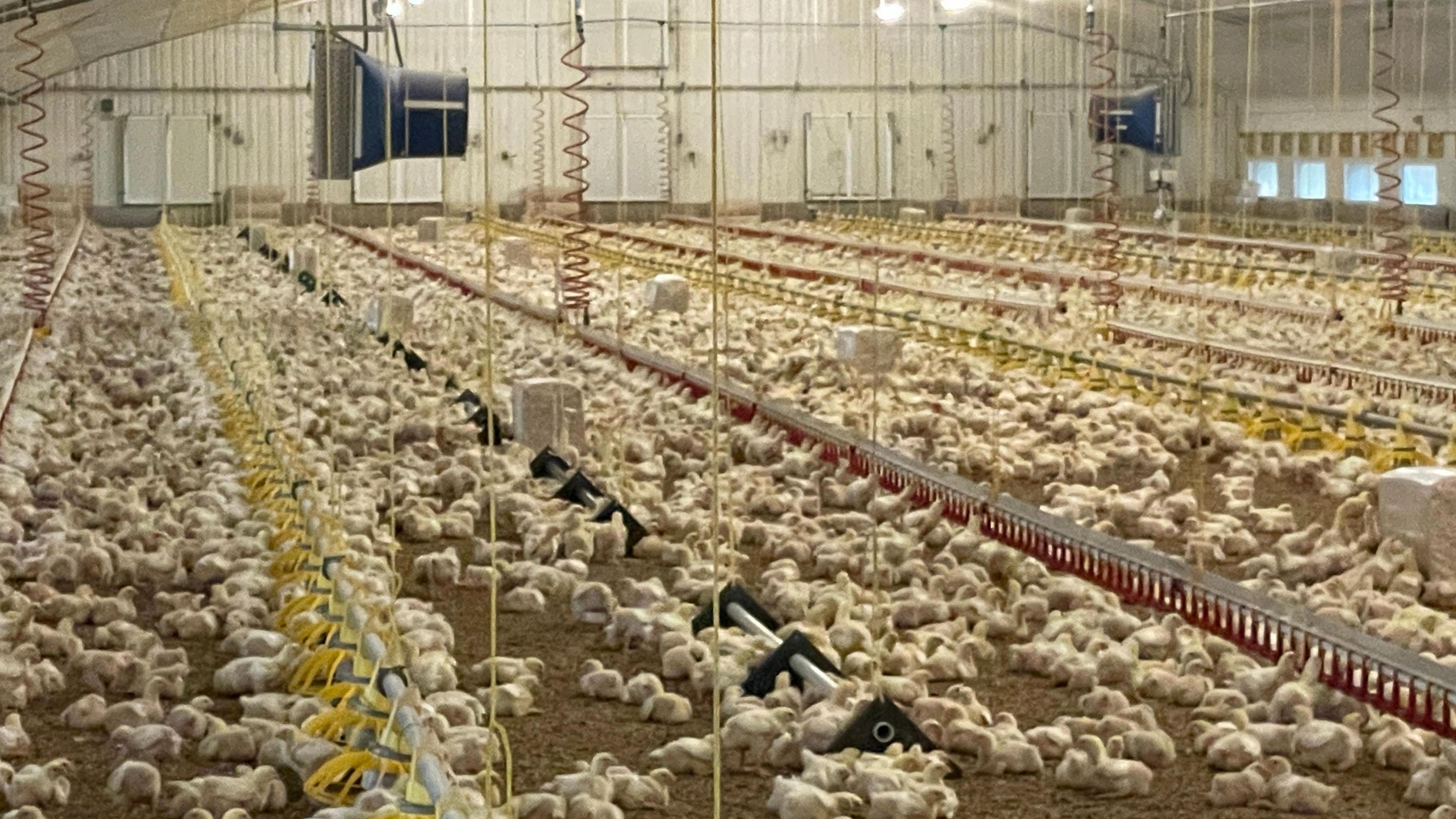
An estimated 23 million chickens are being farmed in the Wye catchment
Leigh Day said the firm - which supplies Tesco - was being sued for compensation on behalf of thousands of people living in the Wye catchment who may have been affected by the pollution in the water.
Pete Redding moved to Hereford 15 years ago to be near the River Wye.
"I used to love paddling my coracle on the water after a day at work," he said.
"Seeing and hearing the wildlife really helped my mental health, but since the water has become polluted I rarely go on the river."
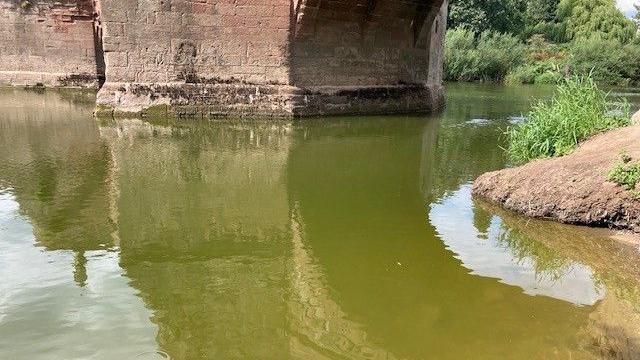
Algae blooms in the river are turning it green
Solicitors Leigh Day say the lives of farmers, landowners, swimmers, canoeists, walkers and anglers have all been affected by increasing levels of algae in the rivers.
“This destruction of one the UK’s most beautiful natural areas cannot continue, which is why we are bringing this legal action,” said Oliver Holland from the firm.
In a separate legal action, campaigners have accused the Environment Agency of not protecting the River Wye from pollution.
The outcome of that judicial review case is expected soon.
Brought by the charity River Action, its founder Charles Watson said it was “entirely appropriate that the polluter must now be made to pay to clean up the mess we believe it has created and subsequently profited from”.
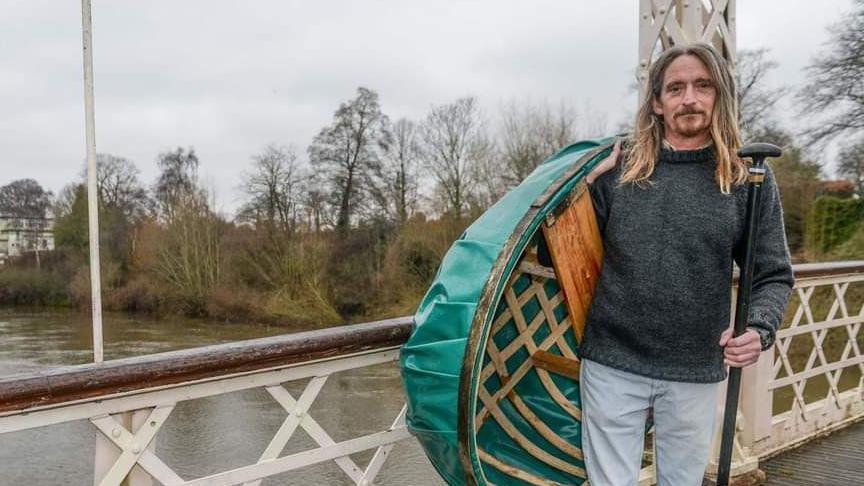
Pete Redding says he has seen a real change in the River Wye
The status of the river was last year downgraded to “unfavourable – declining” by Natural England after fewer species such as the Atlantic Salmon were recorded.
Chicken manure contains high levels of nitrogen and phosphorus which makes it a great fertiliser for crops.
But the nutrients can be washed into waterways when it rains and that can cause algae which starves the river of oxygen.
Studies by scientists at Lancaster University have shown that 70% of the phosphate in the River Wye catchment comes from agriculture, but not all of that is chicken-related.
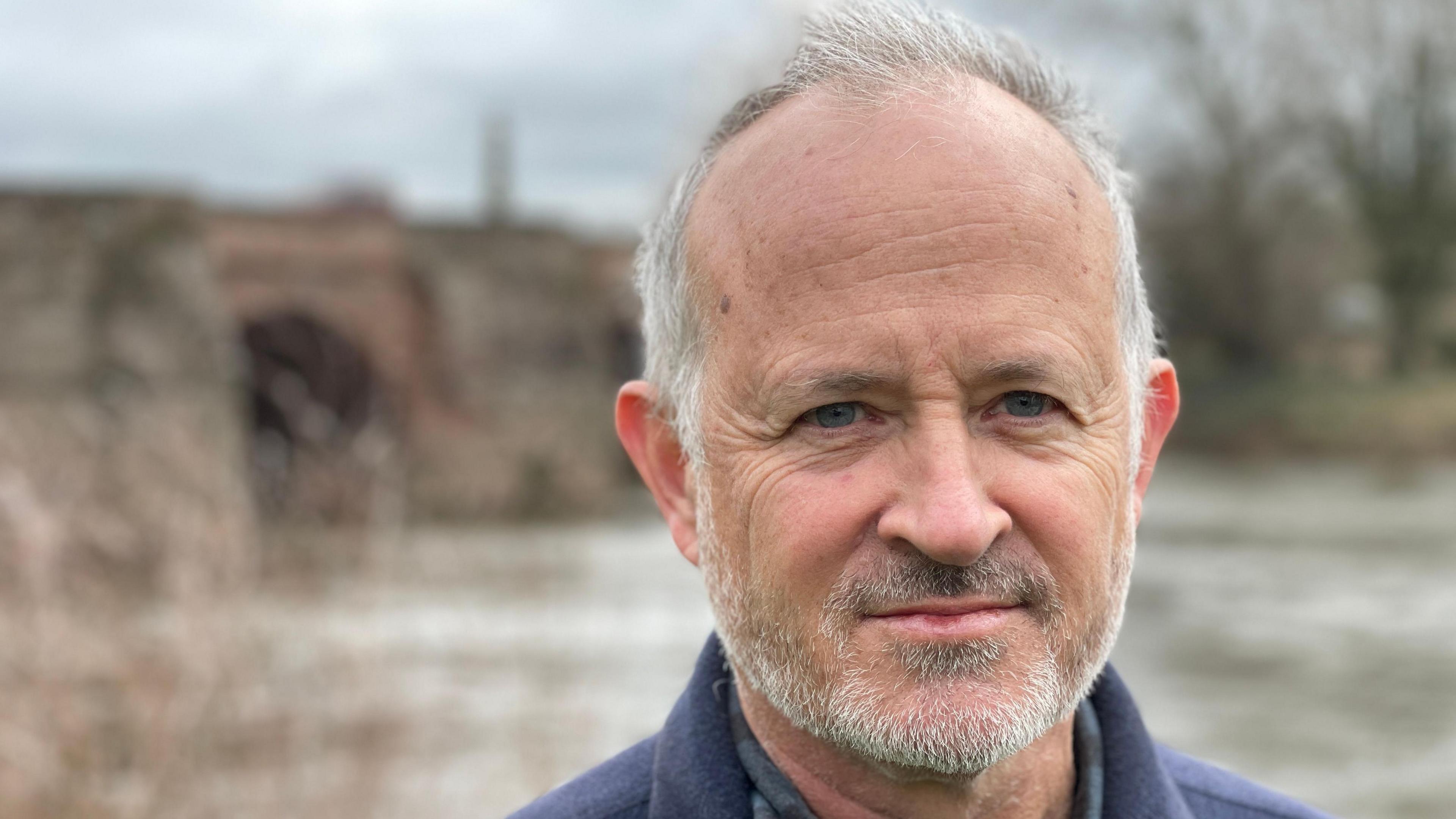
River Action founder Charles Watson is supporting the civil claim
Avara is Herefordshire’s largest private employer and the firm processes two million chickens at its Hereford factory every week.
The firm has said it is reducing the number of its farms in the area from 120 to 104 and the amount of manure produced from 160,000 tonnes a year to 142,000 tonnes.
Its website stated that poultry manure from its supply chain would not be available for sale, as fertiliser, within the Wye catchment from January 2024.
A spokesperson for Avara said the firm was confident that there was no case to defend.
The firm said the case "ignores the long-standing use of phosphate-rich fertiliser by arable farms as well as the clear scientific data showing the issue of excess phosphorus considerably pre-dates the growth of poultry farms in the Wye catchment."
Follow BBC West Midlands on Facebook, external, X, external, and Instagram, external, Send your story ideas to: newsonline.westmidlands@bbc.co.uk, external